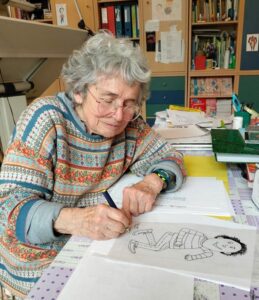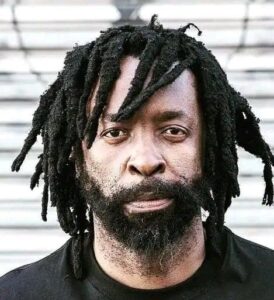Johnson & Johnson (JNJ.N) said on Wednesday that it was pulling the plug on a late-stage global trial of an HIV vaccine after the shot was found ineffective at preventing infections.
The trial’s failure marks yet another setback in the search for a vaccine against a virus known to mutate rapidly and find unique ways to evade the immune system, and comes more than a year after another of J&J’s HIV vaccine failed a study.
“The development of a safe and effective HIV vaccine has been a considerable scientific challenge, but we will learn from this study and continue forward.”
The trial involved administering two different types of a shot, which uses a cold-causing virus to deliver the genetic code of HIV, spread over four vaccination visits in a year. J&J used similar technology for its COVID-19 vaccine.
The study, which began in 2019, was conducted at over 50 sites and included about 3,900 gay men and transgender people – groups that are considered vulnerable to the infection.
Another J&J partner, the HIV Vaccine Trials Network (HVTN), said the shot was being tested only on individuals who did not accept pre-exposure prophylaxis, a treatment to prevent infections. In 2021, around 650,000 people died from HIV-related causes while 1.5 million people acquired the infection, according to the World Health Organization. Various HIV vaccine candidates, including from Moderna Inc (MRNA.O), HVTN and NIAID are currently under trial.
The only HIV vaccine in a late-stage trial has failed, researchers announced Wednesday, dealing a significant blow to the effort to control the global HIV epidemic and adding to a decadeslong roster of failed attempts.
Known as Mosaico, the trial was the product of a public-private partnership including the U.S. government and the pharmaceutical giant Janssen. It was run out of eight nations in Europe and the Americas, including the U.S., starting in 2019. Researchers enrolled nearly 3,900 men who have sex with men and transgender people, all deemed at substantial risk of HIV.
The leaders of the study decided to discontinue the mammoth research effort after an independent data and safety monitoring board reviewed the trial’s findings and saw no evidence the vaccine lowered participants’ rate of HIV acquisition.
“It’s obviously disappointing,” Dr. Anthony Fauci, who as the long-time head of the National Institute of Allergy and Infectious Diseases (NIAID) was an integral partner in the trial, said of the vaccine’s failure. However, he said, “there are a lot of other approaches” early in the HIV-vaccine research pipeline that he finds promising.
“I don’t think that people should give up on the field of the HIV vaccine,” Fauci said.
In addition to NIAID and Janssen, which is a division of Johnson & Johnson, the trial was run by the HIV Vaccine Trials Network, which is headquartered in the Fred Hutchinson Research Center in Seattle, and the U.S. Army Medical Research and Development Command.
Mosaico’s lack of efficacy was not unexpected, experts said, because of the recent failure, announced in August 2021, of a separate clinical trial, called Imbokodo, which tested a similar vaccine among women in Africa. Between the two trials, NIAID spent $56 million, according to an agency spokesperson.
The vaccines tested in both trials used a common cold virus to deliver what are known as mosaic immunogens, which were intended to trigger a robust and protective immune response by including genetic material from a variety of HIV strains prevalent around the world, according to the National Institutes of Health. Mosaico included an additional element intended to broaden the immune response.
Participants in Mosaico, who were between ages 18 and 60, received four injections over 12 months, either of the vaccine or a placebo. The monitoring board found no significant difference in the HIV acquisition rate between the two study groups.
Discover more from KossyDerrickent
Subscribe to get the latest posts sent to your email.








